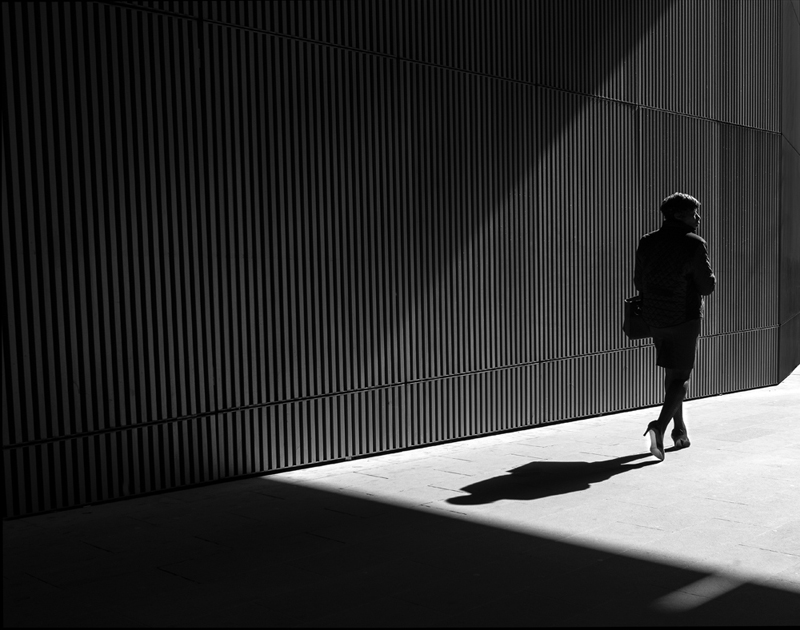But what if we stopped viewing the world as black and white or even as a range of colors? What if we saw it as light and shadow?
When the light shines on the face of a person, that person's skin is brighter than it is when seen covered by shadows, no matter the skin's color. A person's fate is determined more by how the light of the world shines on them than any given choice they could ever make (as if choices could exist independent of circumstance).
A person who has lived in the shadows for years or decades, whether by chance or choice, may reject the light entirely, as the light illuminates what is hurtful, what is harmful, what is hateful. Our cameras can't capture that; the images don't provide that information other than as wrinkles or lines on the face, the posture of a person, and so on. No technology can do that.
But, our technology can mask what is present in reality. Most of the features on cameras are designed to do just that. No matter what brightness or contrast or airbrushing is used to change the appearance and texture of the skin and shape of the face, those applications are shadows that hide the face and body from the natural light of the world in a specific context of being in a time and place.
A lighter skin provided by an airbrush is false. It's a lie. It's not a different type of lie than commercial advertising or selling false conspiracy theories online. Each of them hides life in the shadows and those images present shadow as light.
But saying this in the way I just did in the previous paragraph, saying one is true and one is false, is a type of moral shadowing of reality. It's not that morality has no place in the world, just that acknowledging light (construed as truth, morally) has to occur before any moral (or, better yet, ethical) judgment is ever applied. The "rush to judgment" is the rush to see one thing and ignore everything else displayed in the light.
What is displayed in addition to what is in the light are the potential locations of the shadows. This is mostly considered something bad, something the Panopticon is producing that it should not, exposing what is ugly in the world as something bad in the world. But, we're the ones putting the onus of "bad" onto what we perceive as "ugly" when exposed to the light. Perhaps we're not seeing what is actually present when we determine that something is "ugly." We're rushing to judgment.
If we can withstand looking for a long time at what we instinctively or intuitively think is ugly, we might actually see what is there. We see through lenses of black and white, of color ranges, but we give short shrift to light and shadow. Publicly, anyway.
But online, within social media, the vomiting of ideas without expressive filters is like the surfacing of the world's subconscious, with people not realizing the impact on the world the raw power of their truth (however aesthetically or morally pleasing or unpleasing). The only chaos in the world is our emotional chaos erupting from the shadows.
There are filters being used, but none involve the light. They are shadows as well. The shadows of airbrushing Instagram photos, the shadows of touching up vacation photos on Facebook, the shadows of sharing conspiracy theories for fame and money, the shadows of BLM founders claiming to be Marxist while buying luxury vacation homes, the shadows of connecting personal content with commercial advertisers for the sake of profit, the shadows of trying to purge content from the sight of the world, the shadows of silencing dissent, the shadows of shaming and hating based on race, sex, gender, identities of all sorts.
All of these things place content within the shadows. It's neither good nor bad to live in the shadows. When shadow provides shade from the harshness of the light, I prefer it as well. But saying shadow is light is not reality.
The writings on Anti-Dada are anonymous. They are intellectually and financially free for your viewing and reading. They are free of advertising. The content is not intellectual property. It exists within the wilds of the corporate world, specifically the corporate world of Google. It's hardly free in that sense. But the ideas are not bound by copyright or trademark. Not by me. Yes, it could all be traced back here, whatever one writes and may present as their own. But I like the ideas more than I like the ownership of them. I'd like to see them spread because I prefer them over what exists in the consciousness of the world.

No comments:
Post a Comment